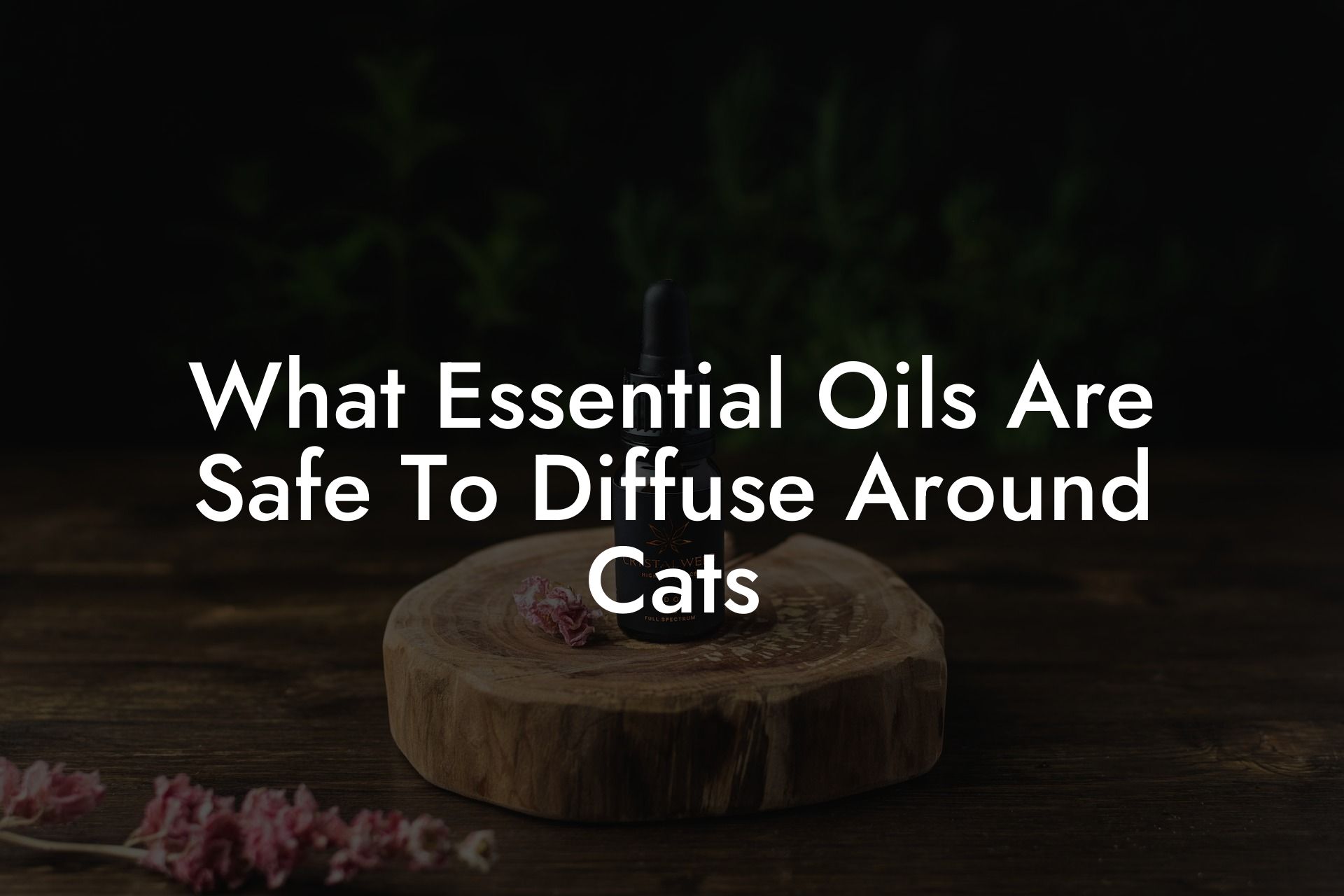Are you a pet parent who loves the benefits of essential oils but aren’t sure which ones are safe for your feline friend? We understand your concern! Essential oils have become increasingly popular for their therapeutic properties, but certain essential oils can pose a risk to cats. Let’s dive into the world of essential oils for cats and identify the safe options for use in your home.
Table of Contents
Why Some Essential Oils Are Dangerous for Cats
Cats are sensitive to certain substances due to the unique way their liver functions. Their liver lacks the enzymes necessary for metabolizing many essential oils, leading to build-up and potential toxicity. In addition, cats have a stronger sense of smell than humans, making them susceptible to respiratory irritation from diffusing oils.
Risks Associated with Unsafe Essential Oils for Cats
- Liver toxicity
- Respiratory irritation
- Allergic reactions or contact dermatitis
- Nervous system disorders
- Other adverse reactions such as vomiting, diarrhea, or behavioral changes
Essential Oils That Are Safe for Cats
It’s essential to know which oils are safe to diffuse around your cat. Here is a list of non-toxic oils that can be used without causing harm to your feline friend:
- Cedarwood (Cedrus atlantica)
- Clary Sage (Salvia sclarea)
- Copaiba (Copaifera spp.)
- Frankincense (Boswellia carterii, Boswellia frereana, Boswellia serrata)
- Geranium (Pelargonium graveolens)
- Lavender (Lavandula angustifolia)
- Marjoram (Origanum majorana)
- Roman Chamomile (Anthemis nobilis)
- Valerian (Valeriana officinalis)
- Ylang Ylang (Cananga odorata)
Important Tips for Essential Oils and Cats
- Always opt for high-quality, therapeutic-grade essential oils.
- Consult with a veterinarian experienced in aromatherapy before introducing any essential oils into your cat’s environment.
- Use a well-ventilated area and a low concentration when diffusing essential oils in a space with cats.
- Store essential oils in a secure location, away from your cat’s reach.
- Monitor your cat for any signs of discomfort, adverse reactions, or changes in behavior when introducing essential oils.
What Essential Oils Are Safe To Diffuse Around Cats Example:
Jill wants to create a relaxing environment for both herself and her cat, Sophie, to unwind after a long day. Knowing that cats can be sensitive to certain essential oils, she decides to educate herself on safe options. After confirming with her veterinarian, Jill selects lavender essential oil for its calming properties. To avoid irritating Sophie’s sensitive nose, she chooses a high-quality, therapeutic grade lavender oil and uses a low concentration in a well-ventilated room. She notices that Sophie is relaxed, content, and has no adverse reactions to the lavender scent.
We hope this guide has provided valuable insight into the world of essential oils and cat safety. Now that you’re equipped with knowledge on safe essential oils for cats, you can confidently diffuse them in your home without compromising your feline friend’s wellbeing. Don’t hesitate to share this informative guide with fellow cat owners to raise awareness of essential oil safety for cats. Remember to explore more articles on Oshu Oils’ blog to further your understanding of essential oils and other related topics. And don’t forget to check out the Oshu Oils range of essential oils to elevate your aromatherapy experience.





















